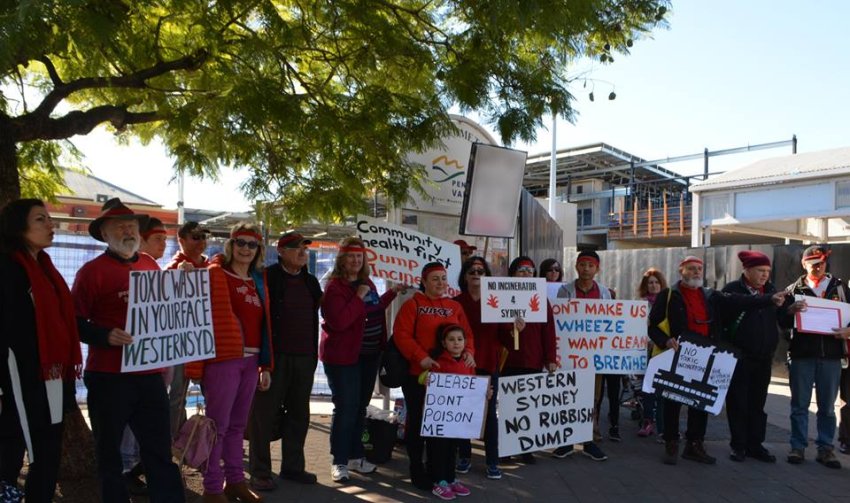
About 100 residents and supporters marched from Penrith Station to the electoral office of the Liberal Minister for Western Sydney Stuart Ayres on July 1, to protest plans to construct "the world's largest waste incinerator" at Eastern Creek. They chanted, "No waste dump for Western Sydney," and gathered signatures on a petition calling on the NSW Parliament to cancel the waste incinerator proposal.
Children carried placards that said "Please don't poison me", "Don't make us wheeze” and “We need clean air to breathe".
The protesters plan to rally on the first Saturday of every month until the Western Sydney incinerator is stopped.
The protesters oppose the proposal by The Next Generation NSW to build an energy from waste incinerator at Eastern Creek. Greater Western Sydney already has the worst air quality in Sydney. There are days when the people of Western Sydney are warned by the Environment Protection Authority (EPA) to stay inside due to the poor air quality.
The addition of an energy from waste incinerator, operating 24 hours a day, seven days a week, would further add to this pollution. Ultra-fine particulates (0.01ug–2.5ugPM) are known to be emitted in high amounts from all forms of incinerators. Australia has no regulatory standards or methods for capturing or monitoring ultra-fine or nanoparticulates.
The proposed site of the incinerator is only 5 kilometres from Prospect Reservoir, putting drinking water at risk from ultra-fine particulates.
Meanwhile, the EPA has criticised the waste incinerator proposal during a parliamentary inquiry into the scheme, saying that the lack of detail was very concerning. "Any gap or uncertainty is unacceptable. In its current form, we can't support it," EPA spokesperson Stephen Beaman said on June 25.
The Energy from Waste facility is set to burn 1.3 million tonnes of garbage a year, to produce enough energy to power 200,000 homes. But the EPA said the proposed facility is so big it is not comparable to incinerators anywhere else in the world. European facilities burn an average of 250,000 to 500,000 tonnes of garbage a year.
"We can't say with confidence it won't affect human health or the environment," Beaman admitted.